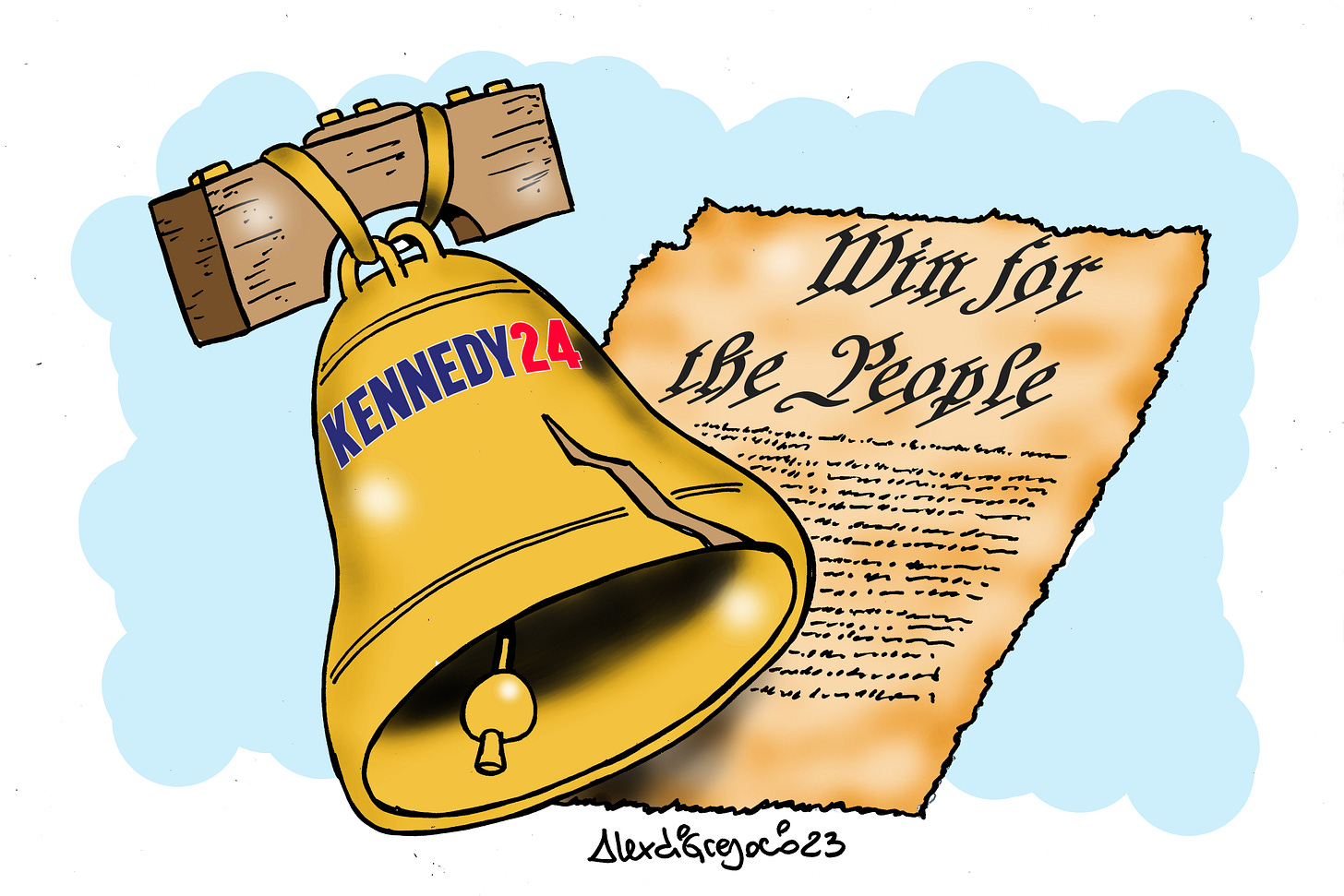BREAKING NEWS: RFK Jr. Wins Major Legal Battle for Free Speech
By Adam Garrie, columnist, The Kennedy Beacon
Independent presidential candidate and public health activist Robert F. Kennedy Jr. was handed a major legal victory on February 14, in his historic class action against the Biden administration.
US District Judge Terry A. Doughty of the US District Court for the Western District of Louisiana issued an injunction prohibiting the White House and multiple federal agencies from contacting social media companies to censor or suppress constitutionally protected free speech. Judge Doughty’s injunction also prohibits social media companies from altering their visibility algorithms at the direct or indirect behest of public agencies.
The injunction will provide relief for Americans whose views on a wide range of public issues have been censored by companies including but not limited to Facebook and Instagram parent Meta, Google-owned YouTube, and X (formerly Twitter).
In issuing his injunction, the judge found: “The Kennedy Plaintiffs demonstrated that not only have the Defendants shown willingness to coerce and/or to give significant encouragement to social-media platforms to suppress free speech with regard to the COVID-19 pandemic and national elections, but they have also shown a willingness to do it with regard to other issues, such as gas prices, parody speech, calling the President a liar, climate change, gender, and abortion."
This is a significant victory for free speech advocates like Kennedy.
Doughty added that Kennedy and his co-plaintiffs “are likely to succeed on the merits of their claims that the White House Defendants, the Surgeon General Defendants, the CDC Defendants, the FBI Defendants, and the CISA Defendants jointly participated with social-media platforms to suppress protected free speech.”
Doughty’s injunction further cited defendants as placing Kennedy on an Orwellian list known as the “Disinformation Dozen.” The people on this list were smeared by a non-US group known as the Center for Countering Digital Hate, which itself is the subject of ongoing litigation from social media company X, as reported by The New York Times.
Shortly after the Center for Countering Digital Hate made a presentation to the Surgeon General’s Office about the supposed need to censor the so-called Disinformation Dozen, “The Surgeon General’s office thereafter ensured Facebook was censoring the ‘Disinformation Dozen,’” according to Doughty’s injunction.
Although Doughty recognized the urgency of the matter, the injunction will be stayed (paused) until the Supreme Court rules on a similar case, Murthy v. Missouri (previously filed as Missouri v. Biden), set to be heard in the nation’s highest court beginning in March 2024. In this case, the attorneys general of Missouri and Louisiana sued the president, his administration, and multiple federal agencies, accusing them of colluding with social media and streaming platforms for the purposes of censoring speech protected by the First Amendment.
When announcing his candidacy for president in 2023, Kennedy explained he was motivated to fight government and Big Tech censorship, which targeted him. In July, he testified before the House Judiciary Select Subcommittee on the Weaponization of the Federal Government, revealing details of the Biden administration’s suppression of his speech.
Most disturbingly, at the start of Kennedy’s appearance in front of the House Select Subcommittee, Representative Debbie Wasserman Schultz (D-Florida) attempted to censor Kennedy’s public testimony by demanding a closed-door session. In the end, Kennedy made his case to congressional representatives, drawing from evidence presented to Judge Doughty.
Due to the similarities between Kennedy’s case and the Missouri case, a final decision on the merits of the matter of online speech will likely be made in the coming months. This precedent will not only affect Kennedy but also impact anyone who has been or is likely to be censored by social media companies at the behest of a government whose responsibility is to protect and uphold constitutional rights to speak, assemble, inquire, and worship freely.
The principles Kennedy is fighting for in the courts are identical to those that would form the core of his policies as president. Throughout his campaign, Kennedy has quoted his uncle, who as president said, “We are not afraid to entrust the American people with unpleasant facts, foreign ideas, alien philosophies, and competitive values. For a nation that is afraid to let its people judge the truth and falsehood in an open market is a nation that is afraid of its people.”
This quote helps clarify the spirit of the First Amendment as a piece of law that defines the United States as a nation unafraid of its citizens expressing themselves with peace, confidence, and passion.
Adam Garrie is a writer, speaker, and consultant on a wide range of current affairs as well as political risk. He is also the co-founder of HiCyrus, a data-driven tech startup that aims to fully democratize information access.









One doen't have to be a Christian (I'm not) to agree with the exhortation in Ephesians 6:12, attributed to the Apostle Paul: "For we wrestle not against flesh and blood, but against principalities, against powers, against the rulers of the darkness of this world, against spiritual wickedness in high places." The added insult is that we, U.S citizen taxpayers, fund the wickedness we are forced to wrestle against.
Thank goodness there is at least one competent and moral Judge!